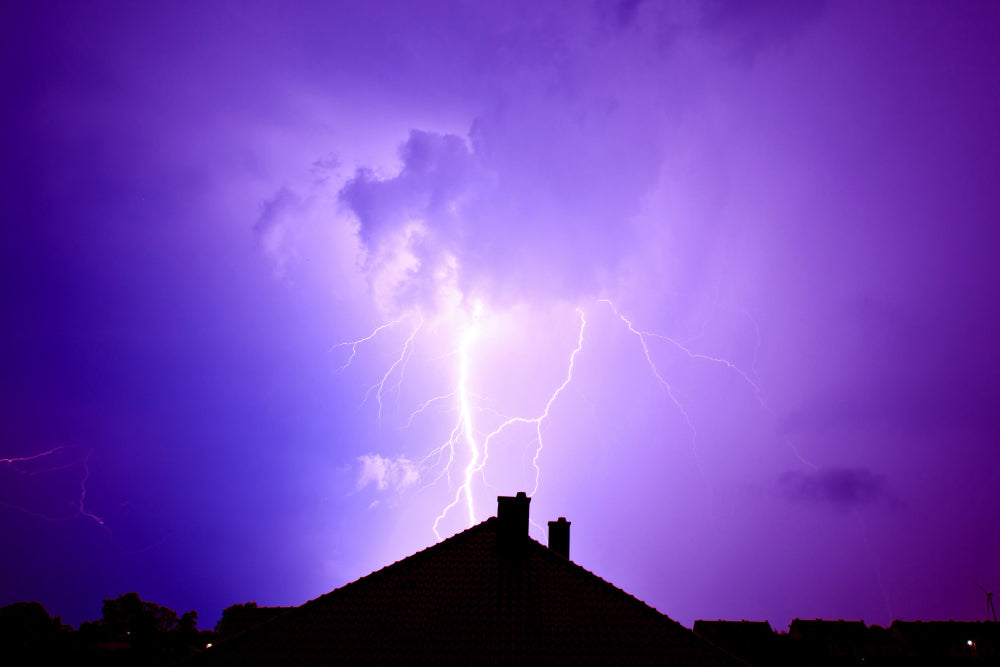Read time: 4 Minutes
What’s inside?:
- What can I do to keep my CPAP working in a power cut?
- Will my power supplier help me?
- What are the alternatives?
What can I do to keep my CPAP working in a power cut?
Depending on how your power is supplied and who supplies it, there are various ways to at least try and get some form of power restored quickly. So, let’s look at the main power supply options and you can pick out which one relates most to your circumstances.
Typically, most people reading this will have their power supplied by the grid. That is, the power is generated by some faceless organisation and sent to your home through cables you don’t own. You just plug things into the socket and the company bills you for whatever you use.
A smaller, but growing, group of homes are either partially or fully off-grid. This has increased with the use of solar panels and storage batteries although some homes also rely on combustion engine-driven generators for either full or back-up power.
Individual battery-powered appliances are rarely relied upon for main use, as they need replaced or recharged frequently, but some remote homes – even if they are weekend getaways – do rely on these.
Will my power supplier help me?
Maybe.
That depends on what systems they have in place to enable help to be provided. You could call them up in a power-cut and speak to the most helpful and caring person on the planet but if the company they represent doesn’t have a way to get you reconnected quickly then you are stuffed!
However, being on their radar is much better than suffering in silence.
United Kingdom
In the UK, there is a Priority Services Register (PSR) maintained by each of the power companies. Here’s a few links to get you started:
- Ofgem – This is the gas and electricity regulator for Great Britain. They’re kind of the independent middle-man between Government and Industry.
- In general, Ofgem says you are eligible to be on the PSR if you:
- have reached your state pension age
- are disabled or have a long-term medical condition
- are recovering from an injury
- have a hearing or sight condition
- have a mental health condition
- are pregnant or have young children
- have extra communication needs (such as if you don’t speak or read English well)
- need to use medical equipment that requires a power supply
- have poor or no sense of smell
- would struggle to answer the door or get help in an emergency.
- More information can be found on Ofgem's website.
- Energy Networks UK – If you simply want to find out who your energy supplier is, there’s a handy lookup tool on the Energy Networks site.
- SSEN (Scottish and Southern Electricity Networks) - For emergency power supplies and additional support, you can visit SSEN's Priority Services page.
- National Grid & Western Power Distribution - Patients can learn about priority support services and download the Customer Service Guide at the National Grid website.
- UK Power Networks - They offer a priority number and text updates during a power cut for those on the Priority Services Register. More information can be found on UK Power Networks' website.
- Scottish Power - Information on services available to customers on the Priority Service Register is detailed on ScottishPower's website.
- Unfortunately, Scottish Power seem to have the worst customer service of all UK energy suppliers.
- NI Networks – If you are in Northern Ireland, in the event of a power cut, registered patients can call their Customer Helpline. To get on the NI Networks register you can sign-up online or by phone. Both options can be found on the NI Networks' Medical Customer Care Register page.
Each supplier will have their own processes but the end-game is the same… getting onto the regisiter.
United States
In the United States there appears to be less joined-up thinking, with no centralised PSR in place. Each State has its own rules and each power company in that state can make-up it up as they go along. However, similar protections to the PSR do exists, especially for those with medical needs that require a consistent power supply, e.g. CPAP users.
Some ways to find help on priority services in the US are:
- Contact Local Utility Companies: Patients should start by contacting their local electricity and gas utility companies. Most utility companies offer special services for individuals with medical needs, including priority reconnection in case of outages.
- Wireless Priority Service (WPS): For priority status over the wireline communications network, the Government Emergency Telecommunications Service (GETS) and WPS are available. More details are on the FCC website.
- State Public Utility Commission: Each state has a Public Utility Commission (or equivalent), which regulates utility services. They can provide information about state-specific programs and protections for individuals with medical needs.
- State Health and Human Services Department: They often have resources and information about available support services for individuals with medical conditions requiring uninterrupted power.
- Local Healthcare Providers: Doctors and healthcare providers can also have information on local programs and may assist in getting patients registered for necessary services.
- Community and Disability Organizations: Organizations such as Scope in the UK offer advice and support regarding utility priority services. Similar organizations in the U.S. might offer assistance and guidance.
You will likely need to provide evidence of your medical condition and the necessity for uninterrupted power supply. Again, each supplier will do their own thing, so best to check the specific requirements of each utility company or state program.
What are the alternatives?
The most basic alternative is having your own battery supply just for your CPAP machine, or other medical devices. That way you will at least be kept alive. You may be staring into complete darkness… but alive all the same.
Given products and suppliers change all the time, there’s little point in putting links here that could be broken next week, so it may well be worth running a search on your favourite shopping site to see what is available. Camping batteries seem to be pretty popular for home backup systems.
If it is viable where you live, having a solar powered backup battery storage is an excellent idea. Most of us don’t use too much energy overnight so, if you are able to install a solar storage battery then it won’t be just your medical equipment that keeps working… that food freezer could be saved too!

